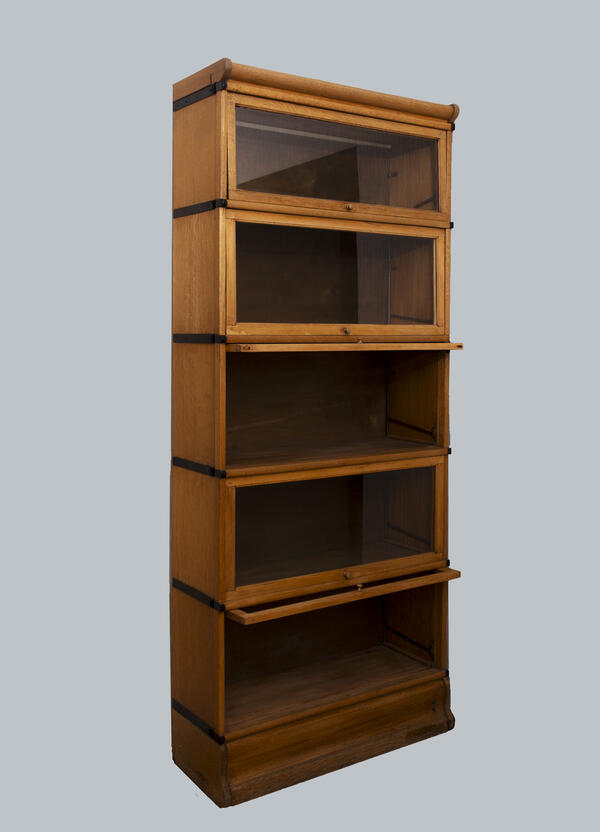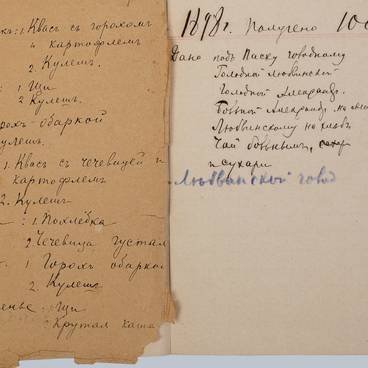Alexander Ertel’s shelving unit is a barrister bookcase. It consists of seven removable shelves, which can be divided into three groups by size. The shelves have glazed hinged doors and are mounted on a beech frame. It has a locking mechanism, which can be used to close all seven shelves at the same time.
Throughout his life, books were a source of joy and inspiration for Alexander Ivanovich Ertel and accompanied him wherever he lived, whether it was his parents’ hamlet near Gryaznusha, the Yempelevo hamlet near Voronezh, the Khludov estate in the Morshansky Uyezd of the Tambov Governorate, or his last apartment in Moscow.
Alexander Ertel carefully collected books for the family library. He bought them in the largest Moscow and Saint Petersburg bookstores of Aleksey Suvorin, Ivan Sytin and Maurycy Wolff. Ertel especially treasured those books that were given to him by the writers themselves, such as autographed books by Ivan Bunin, Anton Chekhov, Gleb Uspensky and Nikolay Zlatovratsky. Ertel had them bound in a special way and decorated with the embossed letter E on the spine, satin endpaper and a ribbon.
Ertel’s books were always in perfect order; the magazines and brochures were also bound and arranged on the bookshelves alphabetically and chronologically.
The writer’s wife Mariya Vasiliyevna Ogarkova-Ertel kept a notebook “The Catalog of Our Library”, where she arranged the book titles in sections: Russian and foreign fiction, literary studies, political and economic literature, memoirs, criticism and collections.
Ertel’s library had a lot of various books, including “Notes” by Princess Yekaterina Dashkova, “Memoirs” by Afanasy Fet, collections of letters of Alexander Pushkin, Ivan Turgenev and Anton Chekhov, and courses of Russian history by Vasily Klyuchevsky and Sergey Solovyov. Vasily Rozanov’s literary essays were next to Nikolay Dobrolyubov’s critical articles. Russian classic books constitute most of the collection. Foreign literature is represented, among others, by multi-volume editions of Charles Dickens, Victor Hugo, and Alexandre Dumas.
Alexander Ertel also had many books on agriculture. In the last years of his life, the writer managed the estates of Yelizaveta Ivanovna Chertkova and her sister Alexandra Ivanovna Pashkova.
After 1908, the library of Alexander Ertel, along with all the furnishings of his last apartment in Moscow, ended up in a small estate called Ertelev, which had been bought by his wife. The books remained there for many years and were later transferred to the Nikitin Museum.



